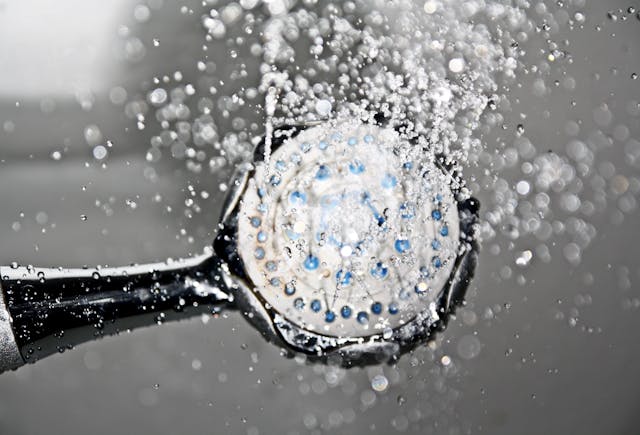Your residential hot water system is one of the most essential components of your home. From warm showers in the morning to washing dishes at night, we rely on hot water throughout the day for comfort, cleanliness, and convenience. However, many homeowners overlook the importance of regular maintenance and smart usage habits when it comes to their hot water systems. At Sparc Electrical, Brisbane’s trusted team of electricians and hot water specialists, we’ve seen firsthand how a few simple tips can make a big difference in performance, efficiency, and system longevity.
Whether you’ve just moved into a new home or are looking to optimise your existing setup, here are five expert tips to help you get the most out of your residential hot water system.
1. Choose the Right Hot Water System for Your Needs
One of the most important decisions you can make is selecting the hot water system that best fits your household’s size, water usage habits, and energy preferences. There are several types of systems to consider:
- Electric Storage Systems: These are widely used and generally more affordable to install, but they can have higher running costs, especially if used during peak electricity hours.
- Gas Storage Systems: Ideal for homes with a gas connection, they heat water more quickly and are less affected by electricity prices.
- Continuous Flow (Instantaneous) Systems: These heat water on demand and are more energy-efficient since they don’t store water in a tank. They are a great choice for smaller households or those wanting to save space.
- Solar Hot Water Systems: These systems harness the sun’s energy and can dramatically reduce electricity bills, especially in sunny areas like Brisbane.
If you’re unsure which system is right for your home, consulting with licensed electricians like those at Sparc Electrical ensures you’ll get expert advice based on your household’s size, budget, and energy goals.
2. Schedule Regular Maintenance
Like any other household appliance, your hot water system needs regular maintenance to ensure it runs efficiently and safely. Neglecting maintenance can lead to corrosion, sediment build-up, leaking, or even complete system failure.
Key maintenance tasks include:
- Checking the pressure relief valve: This safety valve should be tested at least every six months to ensure it’s not stuck or leaking.
- Inspecting the anode rod: Found in storage tanks, the anode rod helps prevent rust. It should be checked every 2–3 years and replaced if heavily corroded.
- Flushing the tank: Sediment build-up in the tank can reduce efficiency and damage the heater. Flushing it annually helps remove mineral deposits.
- Checking thermostats and heating elements: These components wear out over time and should be tested for consistent performance.
Scheduling professional servicing with experienced electricians not only extends the lifespan of your unit but also ensures that your system operates safely and economically.
3. Adjust Your Thermostat to an Optimal Temperature
Many households set their hot water thermostat too high without realising it. While you want hot water available when needed, an unnecessarily high temperature can result in increased energy costs and potential scalding hazards.
The ideal temperature setting for most residential systems is around 60°C at the storage tank. This temperature is high enough to prevent the growth of harmful bacteria such as Legionella but not so high as to waste energy or cause burns.
For systems with tempering valves, which are now required in many Brisbane homes for safety, the water delivered to taps is typically regulated to around 50°C. If you’re unsure about your system’s settings or suspect it’s running too hot or too cold, a licensed electrician can help adjust it safely and in compliance with local regulations.
4. Insulate Your Pipes and Tank
Heat loss from your hot water pipes and tank can reduce overall system efficiency and increase your energy usage. Insulating your hot water pipes, especially those that run through cold areas like under the house or along exterior walls, is a simple yet effective way to retain heat.
Similarly, older storage tanks can benefit from an insulating jacket or blanket that helps reduce standby heat loss. Modern systems are often built with insulation in mind, but adding extra protection can still lead to noticeable energy savings over time.
Proper insulation ensures hot water reaches your taps faster and reduces the need for your system to work overtime to maintain temperature—saving you both energy and money.
5. Monitor for Leaks and Other Warning Signs
Catching issues early can prevent major repairs or even full system replacement. Keep an eye out for signs such as:
- Pooling water near the base of the tank
- Rust-coloured water from hot taps
- Strange noises such as popping or hissing from the tank
- Decreased water pressure or inconsistent water temperature
These signs may indicate problems such as sediment build-up, corrosion, a faulty thermostat, or internal tank damage. Don’t ignore these warning signals. Prompt inspection and repair by qualified electricians or hot water system specialists—like our team at Sparc Electrical—can save you from a costly emergency and extend the life of your system.
Trust Sparc Electrical for Your Hot Water System Needs
At Sparc Electrical, we’re proud to be Brisbane’s reliable partner for hot water system installation, maintenance, and repairs. Whether you need help selecting the right unit, performing annual servicing, or troubleshooting an issue, our licensed electricians have the expertise to ensure your system runs safely, efficiently, and cost-effectively.
A properly maintained hot water system isn’t just about convenience—it’s about safety, energy savings, and peace of mind. By following the tips outlined in this article, you’ll be taking a proactive approach to ensuring your home’s hot water system serves you well for years to come.
Need assistance with your hot water system in Brisbane? Contact Sparc Electrical today to schedule a service or request expert advice tailored to your home’s needs.


 Your Local Reliable Electrician That You Can Trust
Your Local Reliable Electrician That You Can Trust 